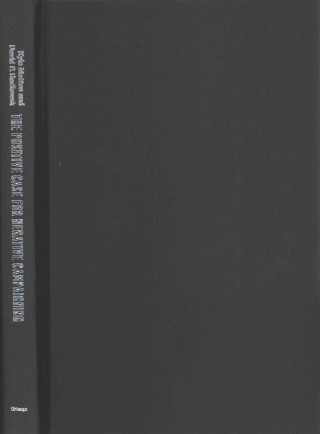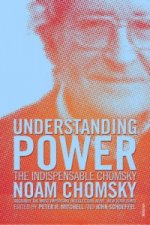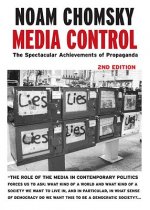
Code: 04544386
Positive Case for Negative Campaigning
by Kyle Mattes, David P. Redlawsk
Turn on the television or sign in to social media during election season and chances are you'll see plenty of negative campaigning. For decades, conventional wisdom has held that Americans hate negativity in political advertising, ... more
- Language:
 English
English - Binding: Hardback
- Number of pages: 256
Publisher: The University of Chicago Press, 2015
- More about this

113.22 €
Availability:
50/50 We think title might be available. Upon your order we will do our best to get it within 6 weeks.
We think title might be available. Upon your order we will do our best to get it within 6 weeks.We search the world
You might also like
-

Nature Guide Rocks and Minerals
15.15 € -18 % -

Nada
125.86 € -

Willie Lynch Letter and the Making of a Slave
6.66 € -19 % -

Iconic Communication
33.76 € -

Kids Talking
62.57 € -

Dwdm
171.76 € -

Lawyers and Citizens
272.96 €
Give this book as a present today
- Order book and choose Gift Order.
- We will send you book gift voucher at once. You can give it out to anyone.
- Book will be send to donee, nothing more to care about.
Availability alert
Enter your e-mail address and once book will be available,
we will send you a message. It's that simple.
More about Positive Case for Negative Campaigning
You get 283 loyalty points
 Book synopsis
Book synopsis
Turn on the television or sign in to social media during election season and chances are you'll see plenty of negative campaigning. For decades, conventional wisdom has held that Americans hate negativity in political advertising, and some have even argued that its pervasiveness in recent seasons has helped to drive down voter turnout. Arguing against this commonly held view, Kyle Mattes and David P. Redlawsk show not only that some negativity is accepted by voters as part of the political process, but that negative advertising is necessary to convey valuable information that would not otherwise be revealed. The most comprehensive treatment of negative campaigning to date, The Positive Case for Negative Campaigning uses models, surveys, and experiments to show that much of the seeming dislike of negative campaigning can be explained by the way survey questions have been worded. By failing to distinguish between baseless and credible attacks, surveys fail to capture differences in voters' receptivity. Voters' responses, the authors argue, vary greatly and can be better explained by the content and believability of the ads than by whether the ads are negative. Mattes and Redlawsk go on to establish how voters make use of negative information and why it is necessary. Many voters are politically naive and unlikely to make inferences about candidates' positions or traits, so the ability of candidates to go on the attack and focus explicitly on information that would not otherwise be available is crucial to voter education.
 Book details
Book details
Book category Books in English Society & social sciences Politics & government Political control & freedoms
113.22 €
- Full title: Positive Case for Negative Campaigning
- Author: Kyle Mattes, David P. Redlawsk
- Language:
 English
English - Binding: Hardback
- Number of pages: 256
- EAN: 9780226202020
- ISBN: 022620202X
- ID: 04544386
- Publisher: The University of Chicago Press
- Weight: 486 g
- Dimensions: 160 × 237 × 20 mm
- Date of publishing: 03. March 2015
Trending among others
-

Long Walk To Freedom
15.26 € -28 % -

On Liberty
11.11 € -22 % -

In Order To Live
11.31 € -23 % -

Propaganda
15.56 € -3 % -

Creating Capabilities
23.24 € -8 % -

The Gulag Archipelago
14.85 € -24 % -

Manufacturing Consent
13.33 € -28 % -

Red Horizons
16.67 € -21 % -

How Propaganda Works
20.01 € -9 % -

Nothing To Envy
9.39 € -36 % -

Understanding Power
19.60 € -18 % -

Handbook of Tyranny
31.43 € -9 % -

New Jim Crow
11.31 € -28 % -

Cultural Cold War
19.40 € -22 % -

Rights of Man
7.27 € -28 % -

Four Immigrants Manga
16.57 € -20 % -

Beware of Small States
23.44 € -12 % -

Message to the People
4.94 € -18 % -

The Gulag Archipelago, 1918-1956
17.58 € -26 % -

Anatomy of the State
11.72 € -27 % -

The Gulag Archipelago, 1918-1956
18.59 € -22 % -

International Law: A Very Short Introduction
8.99 € -27 % -

Media Control - Post-9/11 Edition
13.74 € -

On Palestine
13.23 € -26 % -

Suffragettes
3.43 € -3 % -

Human Rights: A Very Short Introduction
10 € -29 % -

Re-enchanting The World
17.18 € -18 % -

Anatomy of the State
17.18 € -18 % -

Summary of Propaganda by Edward Bernays
5.65 € -23 % -

Propaganda and the Public Mind
20.92 € -10 % -

Half the Sky
13.64 € -18 % -

Parkland: Birth of a Movement
19.70 € -18 % -

So You Want to Talk About Race
14.85 € -26 % -

Beyond Chutzpah
42.75 € -

Natural Right and History
20.41 € -21 % -

Free Speech: A Very Short Introduction
10 € -29 % -

Witness for the Defense
19.40 € -18 % -

New World of Indigenous Resistance
17.88 € -10 % -

Fear No Evil
17.18 € -18 % -

Autobiography of Malcolm X
20.01 € -19 % -

Palestine in Israeli School Books
40.23 € -

Zinnophobia
37.90 € -10 % -

Christianity and Human Rights
43.36 € -

Citizenship
13.54 € -21 % -

Stromaufwärts zur Quelle
18.19 € -9 % -

Gulag Archipelago
18.69 € -22 % -

Political Philosophy: A Very Short Introduction
8.99 € -27 % -

Autobiography Of Martin Luther King, Jr
14.55 € -15 % -

You Have the Right to Remain Innocent
7.27 € -35 %
Collection points Bratislava a 2642 dalších
Copyright ©2008-24 najlacnejsie-knihy.sk All rights reservedPrivacyCookies


 15549 collection points
15549 collection points Delivery 2.99 €
Delivery 2.99 € 02/210 210 99 (8-15.30h)
02/210 210 99 (8-15.30h)